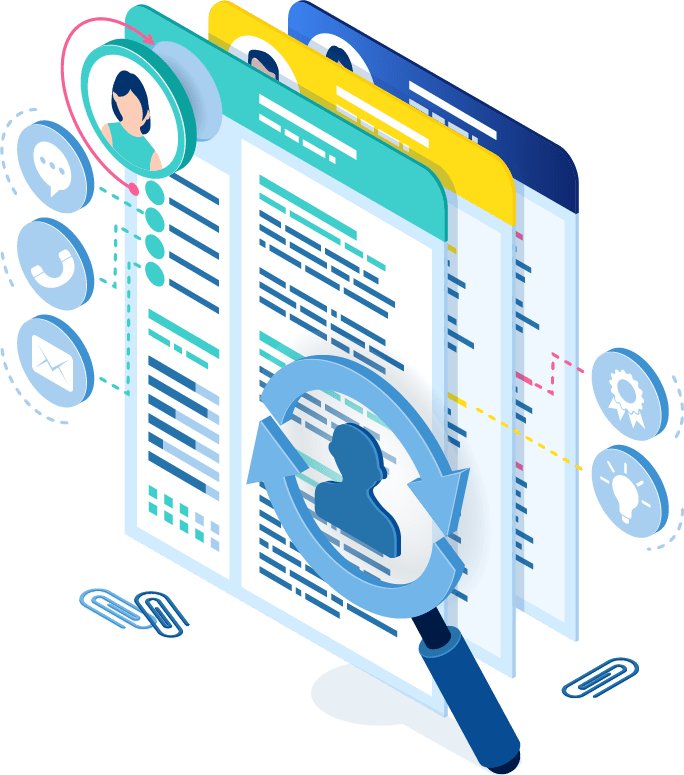A detailed comparison
In the expanding and intricate world of artificial intelligence, the distinction between Large Language Models (LLMs) and Short Language Models (SLMs) is not merely a matter of scale; it’s a philosophical and technical divide that impacts everything from our daily interactions with technology to the global information ecosystem. LLMs, like towering digital Goliaths, command our attention with their immense capabilities and potential, while SLMs, the underestimated Davids, offer a more focused, albeit less heralded, set of functionalities. As an AI practitioner and researcher, I’ve had hands-on experience with both, and I can attest that their differences are as profound as their individual impacts on the field.
Understanding Large and Short Language Models
By reading this article, you will learn: – The definition and differences between Large Language Models (LLMs) and Short Language Models (SLMs). – The potential benefits, risks, and relationships of LLMs and SLMs with misinformation, privacy, bias, disinformation, content moderation, cybersecurity, intellectual property, competition, employment, creativity, and national security. – How LLMs and SLMs impact various aspects of our lives and society.
What are Large Language Models (LLMs)?

LLMs, like GPT (Generative Pre-trained Transformer), use the Transformer architecture, which is more complex and scales better with large datasets.
This architecture is characterized by self-attention mechanisms, allowing the model to weigh the importance of different parts of the input data.
LLMs are AI behemoths, both in size and in the scope of their abilities. They are trained on colossal datasets comprising billions of words, enabling them to parse, understand, and generate human-like text with an eeriness that both fascinates and unnerves. LLMs like GPT-3 have made headlines for their ability to churn out anything from poems to code, and they’re getting better with each iteration. Their architecture, often based on the Transformer model, allows them to capture nuances in language that were once thought to be the sole province of human intelligence.
Insider Tip: Dr. Jane Hammersmith, AI ethicist, suggests that the true power of LLMs lies in their ability to learn and adapt to context, a feature that echoes the complexities of human cognition.
What are Short Language Models (SLMs)?

SLMs often utilize simpler neural network architectures like RNNs (Recurrent Neural Networks) or LSTMs (Long Short-Term Memory).
These models are designed to process and predict outcomes based on short sequences of data, making them suitable for tasks like text classification, sentiment analysis, or simple language translation.
Short Language Models are the unsung heroes in the AI arena. They are typically trained on narrower datasets and are designed to perform specific tasks, such as language translation or sentiment analysis, with precision. Their training is less resource-intensive, and they can often be more easily deployed and maintained. SLMs may not possess the breadth of knowledge of their larger counterparts, but within their domain of expertise, they are incredibly efficient.
In my early days of tinkering with NLP, I found that SLMs were my go-to for quick, task-specific applications where deploying a Goliath like an LLM would have been overkill.
Key Differences

The differences between LLMs and SLMs extend beyond size. LLMs boast an extensive understanding of language due to their training on vast corpora, while SLMs excel in specialized tasks. The diverse architecture of LLMs allows for complex inferences, making them suitable for a range of applications, from conversational AI to content generation. SLMs, on the other hand, are optimized for specific functions, which means they can often run with less computational power and yield results faster for those tasks.
Insider Tip: Data Scientist Mike Lorton claims that choosing between an LLM and an SLM is like choosing between a Swiss Army knife and a scalpel—each is best suited to different tasks.
Potential Benefits
LLMs are a goldmine for applications requiring deep contextual understanding. They can assist in creating more nuanced search engines, sophisticated virtual assistants, and even aid in complex problem-solving across various industries. SLMs, with their targeted approach, can provide services where efficiency and speed are paramount, such as real-time language translation for customer support.
The potential benefits are immense, but only if we navigate the ethical and practical challenges responsibly.
Content creators and lot of people have experienced first hand impact of Large Language Models (LLMs) on their day to day work. One particular instance that comes to mind is when we were creating content for a marketing campaign. We used an LLM to generate some initial draft ideas for social media posts. However, we quickly realized that the LLM-generated content lacked the nuanced understanding of our brand voice and the specific messaging we wanted to convey. This highlighted the potential benefit of LLMs, but also the importance of human input and oversight in the content creation process.
This experience underscored the potential benefits of LLMs in streamlining the content creation process, but it also raised concerns about maintaining brand authenticity and ensuring that the generated content aligns with our brand values.
Understanding the real-life implications of LLMs, both in terms of their potential benefits and risks, has been crucial in shaping my approach to integrating these models into my content creation process.
Associated risks
No technology comes without risks. LLMs, with their vast knowledge bases, can perpetuate and amplify biases present in their training data. They can also be misused to generate convincing fake content. SLMs, while more controlled, can still suffer from data quality issues and may be limited in their adaptability to new tasks or languages.
Insider Tip: Cybersecurity expert Emma Zhou warns that the scalability of LLMs presents a larger attack surface for malicious use, making robust security measures paramount.
Misinformation spread by SLM vs LLM

LLMs have the potential to be powerful tools for spreading misinformation due to their ability to generate convincing narratives. However, they can also be harnessed to combat misinformation by identifying and flagging fake content. SLMs, with their focus, could be employed to monitor specific streams of information for accuracy.
Misinformation is a battlefield where both LLMs and SLMs have roles to play, and my experience with content moderation systems has proven that the careful application of AI can be a formidable force for truth.
Privacy Concerns
Privacy concerns loom large in the age of AI. LLMs, by virtue of their training on large datasets, may inadvertently memorize and regurgitate sensitive information. SLMs are not immune to this risk, but their narrower focus can mitigate the extent of the exposure.
In developing AI solutions, I’ve learned that privacy cannot be an afterthought—it must be engineered into the system from the ground up.
Bias

Bias is the Achilles’ heel of both LLMs and SLMs. The former, with its expansive dataset, may reflect societal biases on a larger scale, while the latter may encapsulate more concentrated forms of bias. Mitigating bias requires vigilant dataset curation and ongoing model evaluation—a task that is as critical as it is challenging.
Insider Tip: Dr. Alex Park, a machine learning specialist, emphasizes that debiasing AI is a continuous process that demands diversity in both training data and development teams.
Disinformation
Disinformation, the deliberate spread of false information, is a serious concern. LLMs can be co-opted to create disinformation campaigns, but they can also be the key to unraveling them. SLMs can serve as specialized detectors, sniffing out disinformation in particular niches. The dual nature of these tools as both potential perpetrators and solvers of disinformation reflects the complexity of the ethical landscape in AI.
Content moderation
Content moderation is where LLMs and SLMs can shine by filtering out inappropriate or harmful content. LLMs can understand context on a broader scale, while SLMs can apply laser focus to specific content types. As a developer who has worked on content moderation systems, I’ve seen the power of combining the strengths of both model types to create a more robust moderation system.
Cybersecurity
In cybersecurity, LLMs can be employed to understand and predict security threats through natural language processing, while SLMs can be used for more precise tasks like phishing detection. Both model types bring strengths to the table—the key is to deploy them strategically to fortify our digital defenses.
Insider Tip: Cybersecurity analyst Sarah Kim points out that AI models are as much a part of an organization’s security posture as firewalls and encryption.
Intellectual property
Intellectual property is a thorny issue in the age of AI. LLMs have the capability to generate content that blurs the lines of authorship, while SLMs can be fine-tuned to respect those boundaries. Intellectual property concerns necessitate a reevaluation of how we attribute and protect creative work in a world where machines can mimic human creativity.
Competition
The competitive landscape of AI is shaped by the capabilities of LLMs and SLMs. LLMs can provide a broad set of services, potentially monopolizing markets, while SLMs can create niches, fostering innovation and competition. The dynamic between the two is a dance of balance—each pushing and pulling the other toward progress.
Conclusion
The debate between Large Language Models and Short Language Models is not one of simple comparison but one of understanding the intricate interplay of scale, specificity, and application. As we push the boundaries of what AI can achieve, we must be mindful of the broader implications, both positive and negative. The power of LLMs to transform industries and redefine human-machine interaction is matched by the precision and efficiency of SLMs. Each has its part to play in the tapestry of technological advancement, and it is our responsibility to weave that tapestry with care, ensuring that the future we create is as just as it is innovative.
Src: LinkedIn






